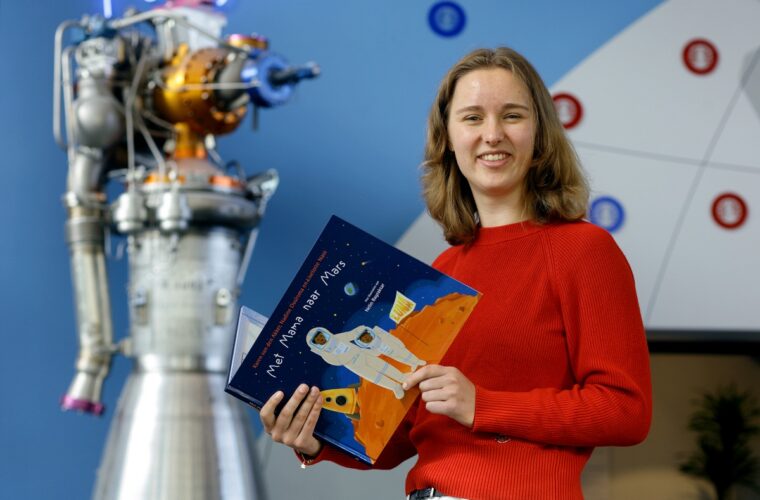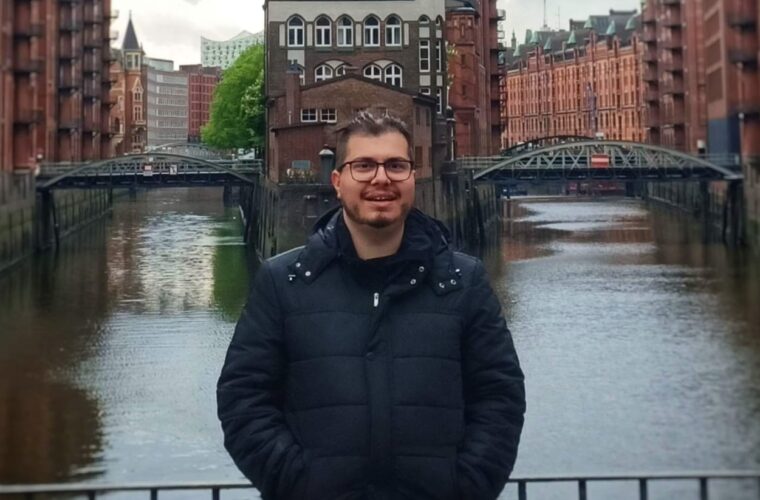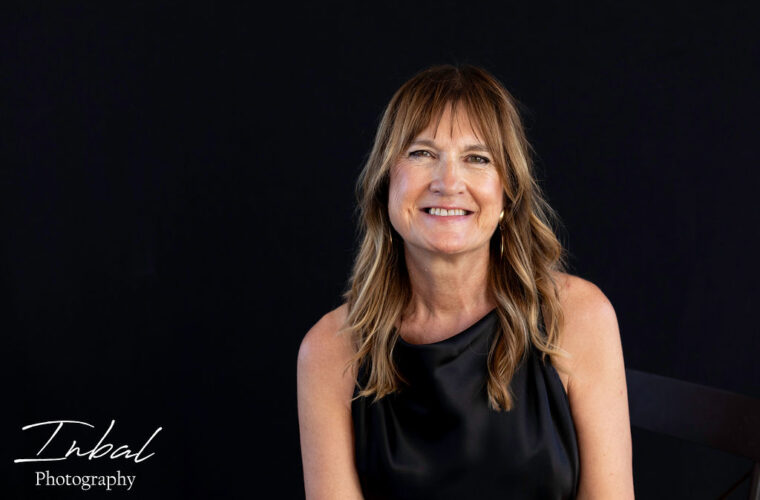Meet the talent: Ekaterina Kostioukhina, Flight Doctor & Space Medicine Researcher
Place of residence: New Zealand
Position: Senior Medical Officer, Flight Doctor and Space Medicine Researcher.
Please describe a day in your life
Because of the nature of my profession, my days vary significantly. However, I maintain consistent routines for performance optimization:
As soon as I wake up, I review my vision board, a combination of pictures and writing that reflect my values and goals. A great mentor once advised, “Keep your eye on the ball.” It’s important to set the direction for the day early on. I also review my goals for the week and the day.
My wonderful husband and partner in life make my mornings special by bringing me coffee and breakfast in bed. This is our way of seizing moments in our busy routine to create special memories and show our love for each other. We share family time together, enjoying the cute and silly things our baby son does. Once the coffee kicks in, I start my workday.
Currently, I am based in New Zealand, a remote and beautiful country close to Antarctica. I lead a team that cares for patients in the hospital, starting with medical rounds in the morning. Afternoons are dedicated to research on space medicine, focusing on our current project on human hibernation.
When emergencies arise in remote areas, I travel with an air ambulance to transport patients to receive the necessary medical care. People in remote areas on Earth are the first to benefit from space medicine research. We use telemedicine and advanced protocols to provide the best possible care.
In the evening, I spend time with my family, sharing stories about our day and laughing at the funny things our son does. My favourite moments are when we dance in the kitchen to the sound of our son drumming on the kitchen pans.
Before bed, I review what I am grateful for, what went well, and what processes could be optimized. I fall asleep listening to an AI-generated voice reading a scientific article on hibernation.
How many projects are you working on currently?
Perhaps too many! My main research project focuses on advancing the knowledge of human hibernation for space exploration. We are currently reviewing the literature on the physiology of natural hibernators and examining cases where humans have experienced decreased metabolism, such as in induced or accidental hypothermia and prolonged bed rest or coma.
We are also spearheading the development of the Space Medicine program in New Zealand, a country with a strong presence in space activity and exceptional talent. The remoteness and diverse terrain of New Zealand make it an ideal environment to develop and test these technologies, which are not only crucial for space exploration but also essential for providing advanced medical care to populations living in remote and isolated areas.
Can you explain to us what extreme environments are?
Extreme environments are conditions that are significantly challenging for human survival due to factors such as temperature, pressure, radiation, or lack of resources. These include environments like the deep ocean, polar regions, high altitudes, deserts, and outer space. In such settings, human physiology faces unique stressors that require advanced technology and adaptation strategies to ensure safety and functionality.
Additionally, extreme environments can also be found in remote areas on Earth where populations are isolated from modern technology and infrastructure. These remote environments often lack access to essential services, making it difficult for residents to receive timely medical care, education, and other necessities. Examples include rural areas in developing countries, isolated island communities, submarines and sparsely populated regions with harsh climates.
Can you explain what space medicine is and how it is combined with extreme environments?
Space medicine is a specialized medical science field focused on astronauts’ health and well-being before, during and after space missions. It addresses the unique challenges the space environment poses, such as microgravity, radiation exposure, and isolation. Space medicine combines knowledge from various disciplines to develop strategies and technologies that ensure astronauts’ physical and mental health. By studying extreme environments on Earth, such as polar regions and deep-sea habitats, researchers can simulate and understand the stresses of space travel, leading to innovations that enhance safety and performance in both space and terrestrial extreme environments. The research generated for these conditions not only enhances our understanding of human resilience but also drives innovation in fields like medicine, engineering, and environmental science.
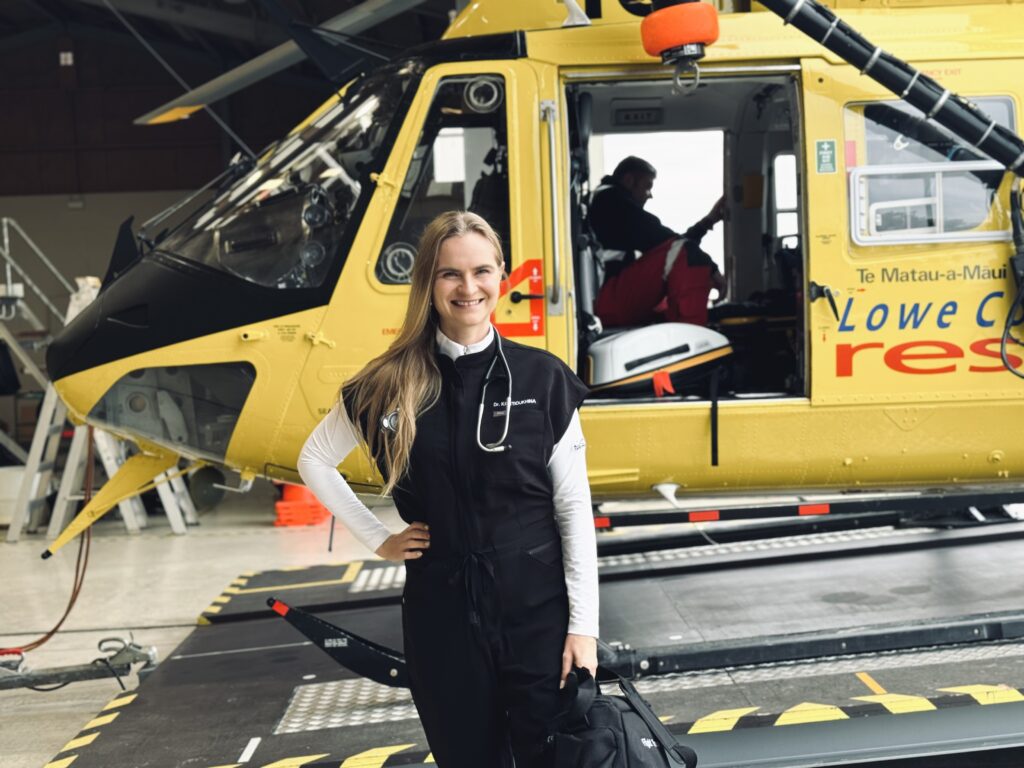

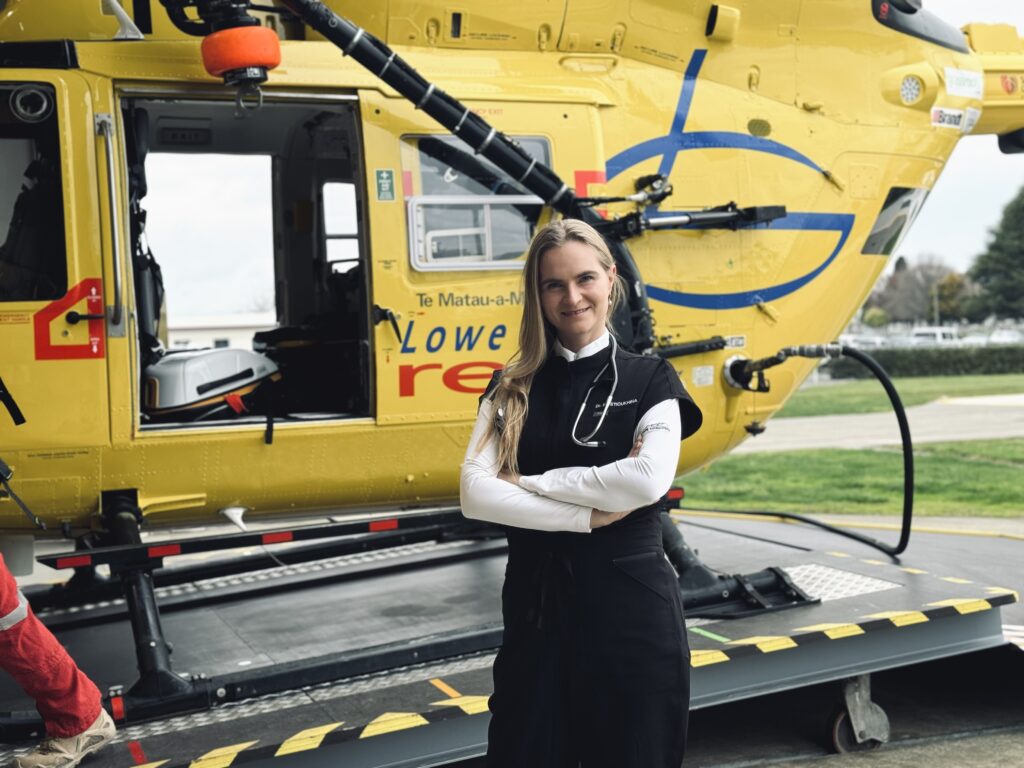
In your opinion, who is the most influential person in the world of technology these days?
Undoubtedly, Elon Musk. His achievements have made a significant impact on various fields, from space exploration to electric vehicles. However, this influence comes with great responsibility for both him and us. While we admire his accomplishments, it’s crucial to remember that he is human, with all the complexities that entails. Therefore, it’s important to critically examine his advice and actions and not just follow blindly with admiration.
If you could pick one app/product/project existing now that you wish you were involved in, what would it be?
I would love to be involved in the Neuralink project. Leading research suggests that hibernation can be induced by stimulating particular areas of the brain, which is directly relevant to my work on human hibernation for space exploration. Neuralink’s technology could be crucial in expanding the research and applications in this area. Collaborating with Neuralink would provide an opportunity to explore how brain-computer interfaces can facilitate hibernation, potentially revolutionizing space travel and advancing medical treatments for various neurological conditions.
How do you see space medicine developing in the next ten years?
In the next ten years, we will see significant advances in delivering medical care to remote and challenging environments through technologies such as telemedicine and AI. Given the current shortage of trained medical professionals to meet the demands of our global population, these technologies will be crucial in expanding our reach and providing high-quality care.
Space medicine, in particular, will play a pivotal role in pushing the boundaries of traditional medicine. The rigorous testing of these technologies in space will ensure their safety and efficacy, ultimately facilitating their adoption on Earth. This field will drive innovation in medical practices, making advanced healthcare solutions accessible even in the most isolated areas of our planet.
What is your greatest achievement up until today?
My greatest achievement is my family. As a doctor, I have had the privilege of witnessing the wisdom that comes with advanced age. My patients, from the different cultures where my journeys have taken me, have taught me that in life’s final moments, what truly matters is the love and relationships we cultivate.
Being a mother is one of the greatest gifts women can cherish. Building a family with my husband and partner in life and nurturing the next generation with our son is a profoundly special and important task. Experiencing motherhood and being a woman in this period of history has been incredibly gratifying, especially with this role’s challenges. While my professional pursuits in science and medicine are driven by passion and curiosity, my family remains the most meaningful part of my life and greatest achievement.
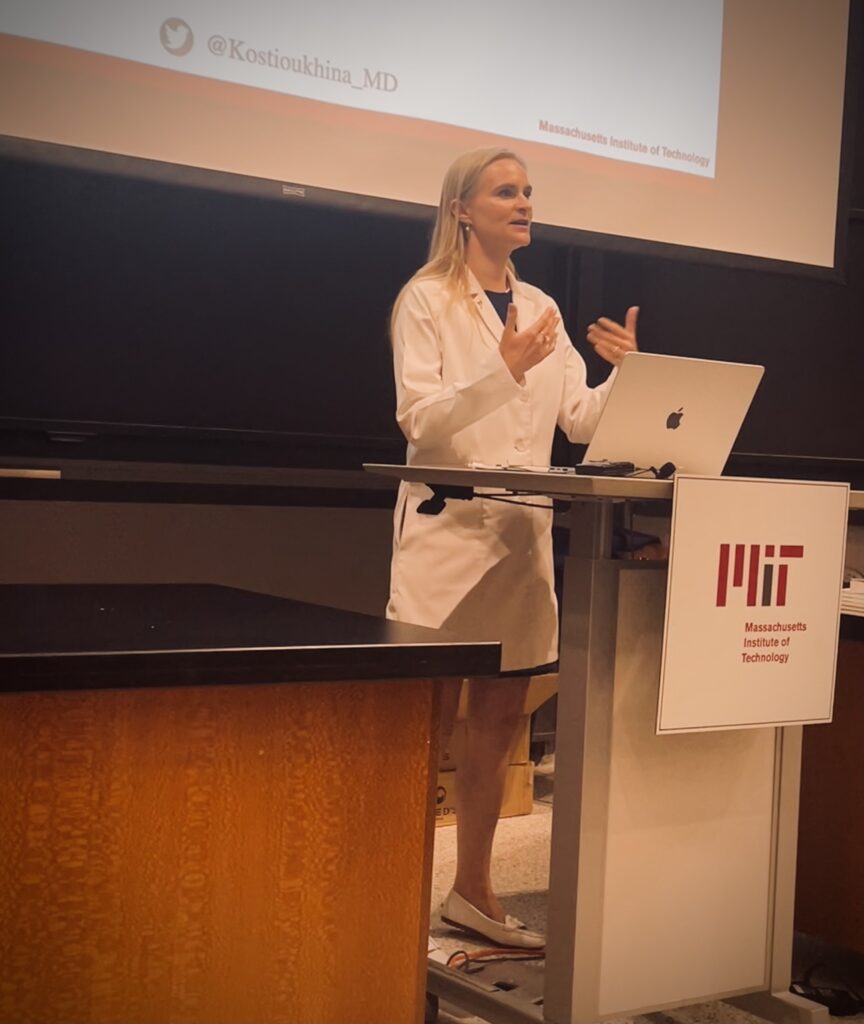
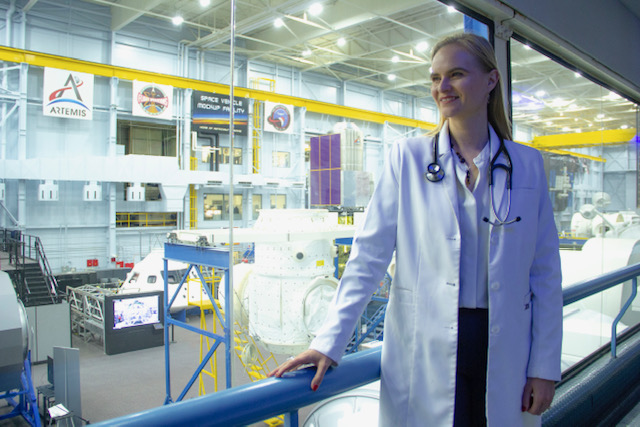
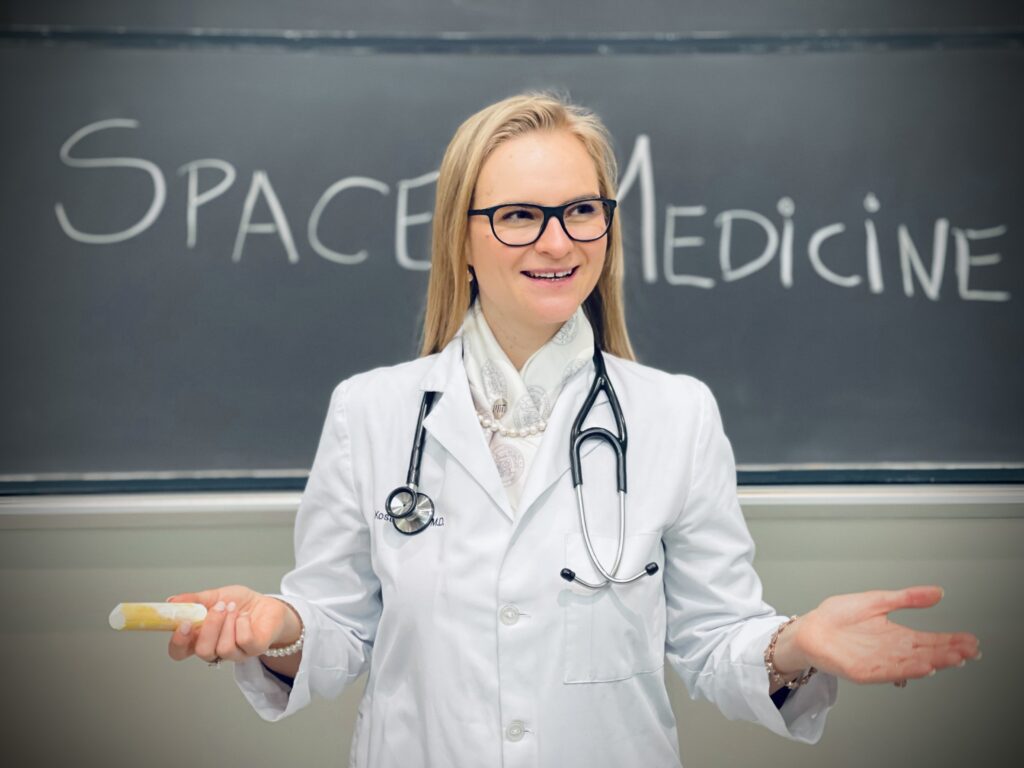
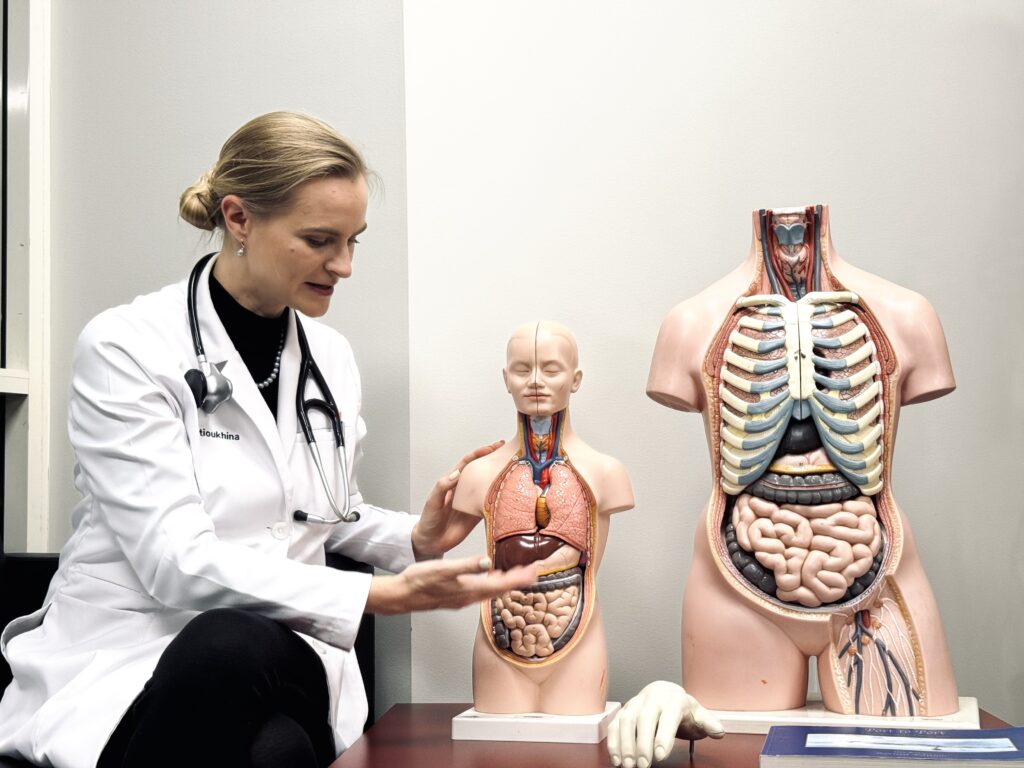
What is your next goal?
My next goal is to advance space medicine in New Zealand. This involves developing innovative healthcare solutions and technologies that can benefit both space travellers and remote populations on Earth.
What would it be if you could say something to your younger self?
It will be ok, enjoy 🙂
In the end, everything will be alright. If it’s not alright, the journey isn’t over yet.
If you could have dinner with anyone, who would it be and why?
Amanda Nguyen. While pursuing her dream at Harvard of becoming an astronaut, she faced the devastating experience that, unfortunately, so many women still face today of being raped. Instead of allowing this traumatic event to debilitate her, she channelled her pain into activism, founding Rise and advocating for numerous laws to protect sexual assault survivors. Amanda’s journey from survivor to civil rights activist exemplifies incredible resilience and strength. Despite this detour, she has now achieved her dream and has been chosen as an astronaut, preparing for her first mission. She continues to break barriers and inspire others. I would be deeply honoured to thank her for standing up for women and demonstrating that adversity can become a catalyst for profound change, our “rocket fuel.” It would be a privilege to one day serve as her space medicine doctor, supporting her as she continues to impact the world significantly.
Where would you like to travel next?
Antarctica. The challenge of surviving in such an extreme environment is fascinating to me. The harsh conditions and isolation present unique opportunities to study human resilience and adaptability, which align with my interests in optimizing human performance and exploring the limits of human endurance. Additionally, Antarctica’s pristine and remote nature offers a rare chance to experience one of the last untouched places on Earth.
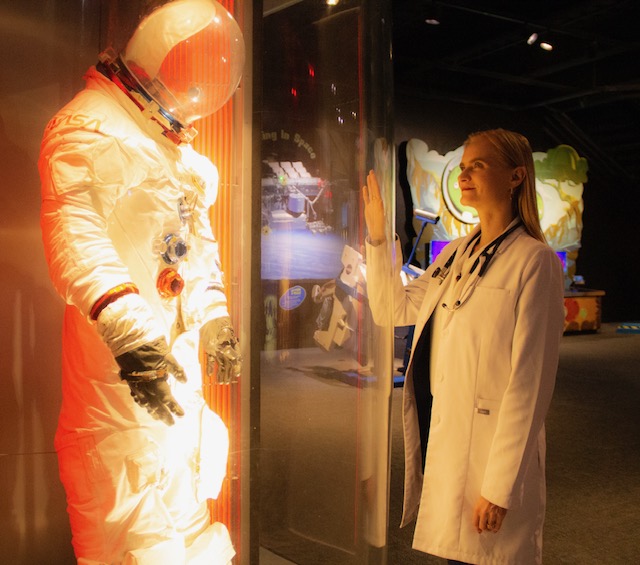
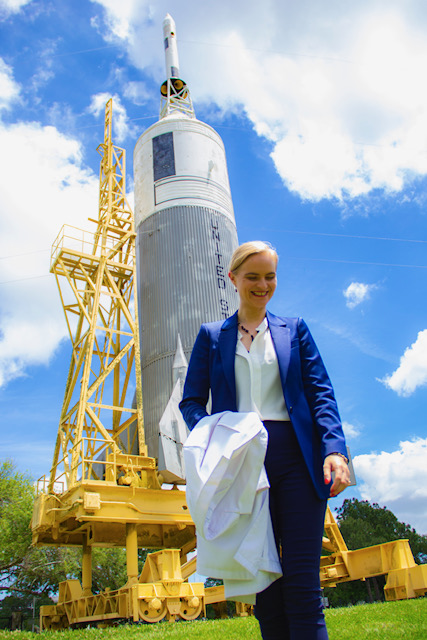
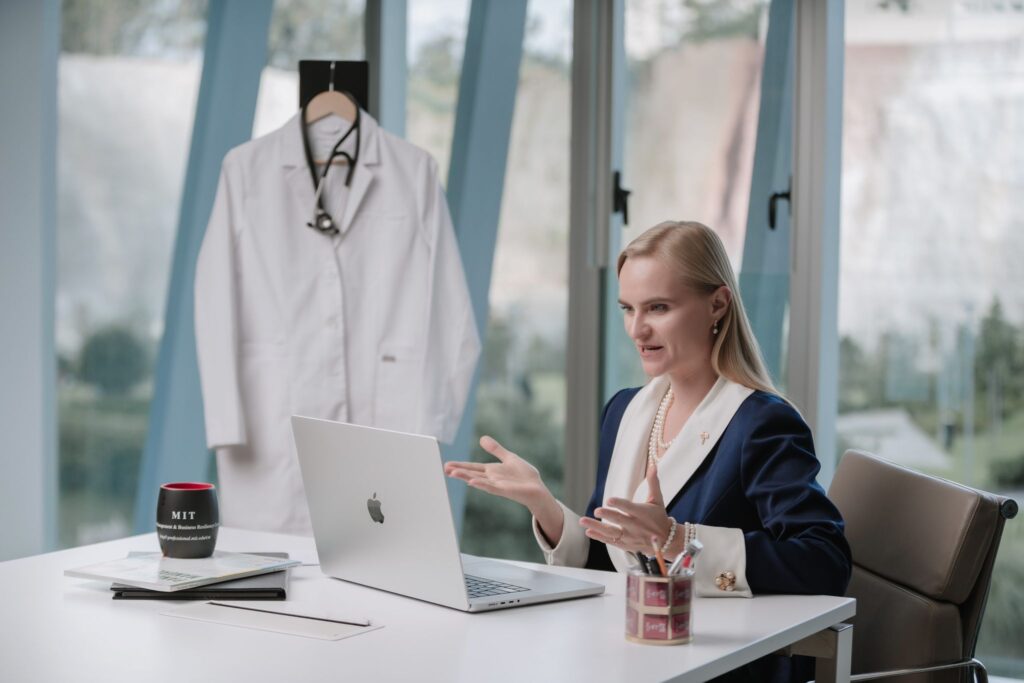
Do you have a person who influences or motivates you?
My husband. No matter what the situation is, he finds a creative and positive way to not just overcome it but to make it a great experience. His ability to turn challenges into opportunities for growth and joy continually inspires and motivates me.
What did you dream of creating/inventing/doing as a child?
Science always fascinated me. I thought that being a scientist in a white coat would be my dream come true. However, a summer internship at a lab revealed that while I loved learning about scientific discoveries, the intense focus on very specific problems in the lab setting wasn’t my true passion.
I realized I enjoyed asking many questions and seeking a broad range of answers. My curious mind craves knowledge, and I found the perfect fit for this in medicine. Medicine is a field where one has to learn continuously, and there’s no retirement from knowledge. In my medical school application, I wrote, “I want to be learning forever to satisfy my need for knowledge and then use that acquired knowledge to help people in need.”
Now, I have my dream job. I get to engage in continuous education and solve complex puzzles when patients present with intricate health conditions, and yes, I get to wear a white coat. 👩🏼⚕️
What advice do you give to young girls who want to follow similar careers?
Allow yourself to dream big dreams. “Shoot for the moon and even if you fail, you will land among the stars.”
Believe in your potential, and never let anyone tell you that your dreams are too ambitious. Pursue your passions with determination, stay curious, and always be eager to learn. The journey may be challenging, but the rewards of following your passion and making a difference in the world are worth it.
As Buzz Aldrin said:
“I know the sky is not the limit
because there are footprints on the moon
—and I made some of them.”

